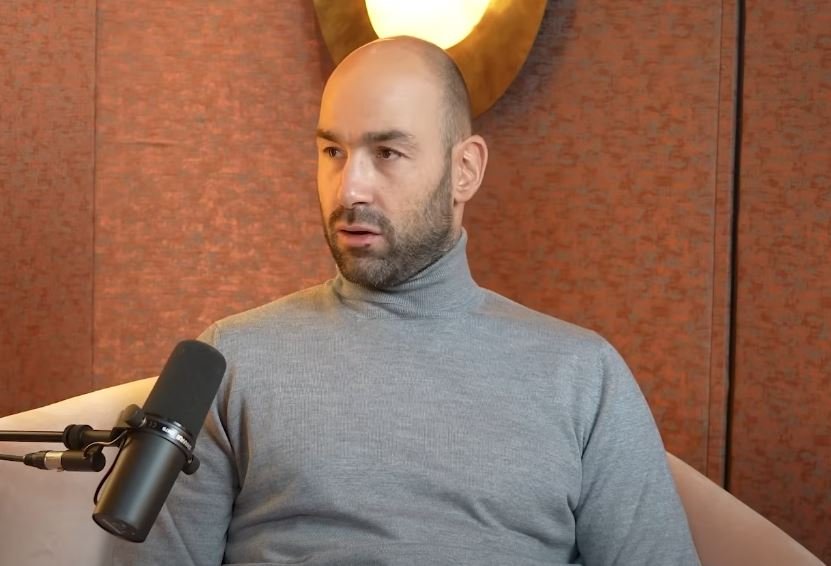
More than just spectacular stats, Spanoulis’ net worth is a testament to a career masterfully crafted through tenacity, devotion, and consistency over two decades of European basketball. NBA fans might only remember a short time spent with the Houston Rockets, but in European arenas, a masterful playmaking performance resulted in millions of dollars in earnings on and off the court.
Spanoulis established himself as a financial asset to every club he worked with in addition to being a sporting hero by utilizing his dominance in the Greek Basket League and EuroLeague throughout his career. His three-year contract with Olympiacos, which was reportedly worth €7.2 million net, was a watershed that raised financial standards throughout the Greek league.
Vassilis Spanoulis – Key Biographical and Financial Details
| Attribute | Detail |
|---|---|
| Full Name | Vassilis Spanoulis |
| Date of Birth | August 7, 1982 |
| Birthplace | Larissa, Greece |
| Height / Weight | 6 ft 4 in (1.93 m) / 212 lbs (96 kg) |
| Nationality | Greek |
| Playing Career | 1999 – 2021 |
| Coaching Career | 2021 – present |
| Current Role | Head Coach, AS Monaco and Greece National Team |
| NBA Stint | Houston Rockets, 2006–2007 |
| Major Teams Played For | Maroussi, Panathinaikos, Olympiacos, Houston Rockets |
| Estimated Net Worth (2025) | Approximately $15 million |
| Coaching Salary (Monaco) | €2.5 million over three years |
| Agent | Miško Ražnatović (Beo Basket Ltd.) |
| Honors | 3× EuroLeague Champion, EuroLeague GOAT (2023), Olympiacos #7 Retired |
While players like Giannis Antetokounmpo were changing the NBA’s history over the last ten years, Spanoulis was establishing a surprisingly successful legacy in Europe. He made $5.83 million in the NBA in one year, but that was a lot less than what he would have made if he had remained in Europe. Being incredibly adaptable on the court and dependable in crucial moments, he came to represent consistent excellence.
Spanoulis secured a new financial chapter in 2024 when he signed on as head coach of AS Monaco. His €2.5 million contract, which is divided between two seasons that are guaranteed and one that is optional, reflects the growing value of coaching positions in Europe. Clubs have made more and more investments in players with recognizable histories in recent years. For a former player moving into the world of elite coaching, the Monaco deal, which is worth €500,000 in the first year and €1 million a year for the next two, is especially advantageous.
Additionally, Spanoulis has maintained a consistent flow of endorsements by forming strategic alliances with both domestic and foreign brands. Even though he isn’t as ostentatious as his American counterparts, his reputation in Greece is extremely valuable. He is not only a sportsman but also a civic icon because he has regularly participated in national campaigns that support youth sports.
His financial path is similar to that of basketball players like Toni Kukoc in the context of European basketball economics, despite Kukoc’s $30 million valuation being largely dependent on NBA contracts. Nearly all of Spanoulis’ wealth came from European leagues, which saw a notable increase in financial scale during his career as a result of media rights agreements, rising sponsorship, and the EuroLeague’s wider audience.
Spanoulis was especially creative in his personal branding strategy, cultivating a reputation for self-control, modesty, and intense competition. Every appearance was given dramatic weight by his rivalry with Panathinaikos legend Dimitris Diamantidis, which is arguably the most defining in Greek sports. These stories increased attendance and maintained high television ratings, which eventually resulted in financial success for all stakeholders.
As time went on, Spanoulis emerged as a role model for young Greek athletes, who were motivated not only by his accolades but also by his consistent financial success despite primarily remaining within the European and domestic borders. He made the financially sound and emotionally satisfying decision to become a coach in order to remain active and relevant during the pandemic when clubs tightened their budgets.
Spanoulis considerably decreased the risk usually borne by new head coaches by incorporating his playing heritage into his coaching persona. Monaco was embracing a cultural asset with demonstrated leadership, media value, and fan engagement rather than just hiring a tactician. From a club marketing perspective, the coaching agreement is very effective and exemplifies how tradition and functionality can coexist.
Merchandise sales have increased and fan attendance has significantly improved since his Monaco appointment was announced. Monaco’s calculated choice to assemble a team that includes former teammates like Ilia Kandzouris demonstrates a particularly considerate approach: maintaining coaching chemistry while bringing in familiarity.
Although Spanoulis is still in his early coaching career, he is already earning top-tier salary figures when compared to highly compensated European coaches like Zeljko Obradovic or Ettore Messina. Due in large part to his stature and winning track record, his earnings as a coach are increasing at a substantially faster rate than those of typical rookies in the same role.
He has kept close ties with coaches and other athletes over the course of his more than two-decade career; his personal network includes everyone from McGrady to Jasikevičius. These connections have helped him build cooperative, championship-focused teams and make the move from player to coach.
Admired by the public and loved at home, Spanoulis continues to serve as an example of how regional greatness can compete with international stardom in terms of both cultural influence and financial gain. His ability to stay relevant, initially due to his skill on the court and now to his strategic thinking, provides a model for success after retirement.
